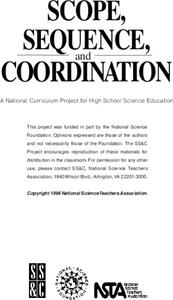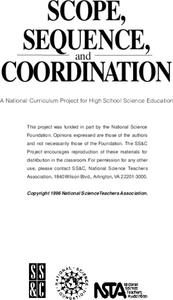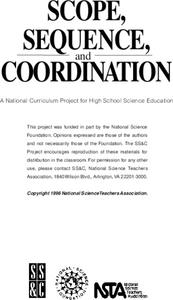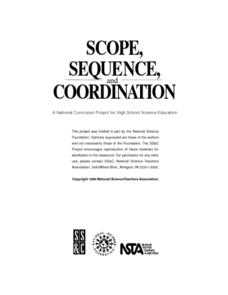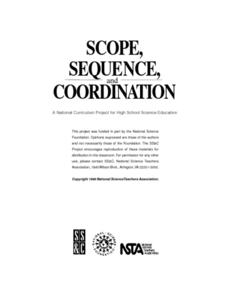Curated OER
Phase Changes of Water
A micro-unit on the phase changes of water includes three laboratory activities. Junior scientists compare the densities of ice and water, and then they do the same for cold and warm water. They examine freezing and boiling temperatures....
Curated OER
Density Studies of the Earth
Density comes to life as investigators place soda cans into containers of various liquids to find if they sink or float. They layer different density liquids, compare densities of different gases, and more. A total of six different...
Curated OER
Neurons and the Nervous System
The highlight of this series is activitiy #4. Anatomy pupils examine slides of three unknown cells. With the function of the nervous system in mind, they consider the structure of each and try to guess which one is part of that system....
Curated OER
Animal Behavior
Can you train a worm? Biology buffs will have a blast trying! Using planaria or earthworms, they introduce a certain stimulus repeatedly until the desired response happens more quickly. They also explore the response of their own eyes to...
Curated OER
Motion and Inertia
Physics learners make magic with inertia! By pulling paper out from under a stack of blocks or batting a rubber ball into motion, physics scholars' eyes will be opened! Don't think that this lesson plan is only fun and games; plenty of...
Curated OER
Laws of Motion
Do you need some new ideas for teaching Newton's Laws of Motion? This series of activities will spring your curriculum to life! Choose from five activities to demonstrate or have your science stars perform. As a result, they will have...
Curated OER
Law of Conservation of Momentum
A suggested sequence of events lays out five hands-on activities and four creative assessments on the conservation of momentum. Using spring scales and mail scales, junior physicists examine Newton's Third Law. After you have taught the...
Curated OER
Newton's Second Law
Three memorable activities build on each other to give physics masters a firm grasp of Newton's Second Law. Pupils play with a lab cart on a flat surface and on an incline to confirm that force is equal to mass times acceleration. In the...
Curated OER
Forces Acting on a Spring
Teaching elastic forces in your physics class is a snap with this resource! Scholars compare the stretch of rubber bands with differing width, then measure the stretch of a spring and calculate force. In a whole-class experiment, wire is...
Curated OER
Physical Properties of Matter
Five fabulous procedures introduce physics or chemistry classes to special properties of matter. They discover adhesion and cohesion, solubility, melting and boiling points, and viscosity through hands-on experiences. Tests are...
Curated OER
Gas Pressure, Volume, and Temperature
Physical science learners conduct a simple experiment using the heat of their hands to affect the fluid pressure. They place a balloon atop a freezing cold bottle and observe what occurs as it warms up. Both activities demonstrate how...
Curated OER
Atmospheric Pressure
Push the envelope with this lesson on atmospheric pressure! Your physics or geology juniors will be amazed at your super-human ability as you demonstrate the breaking of a stick using a newspaper! They also work with peers to construct a...
Curated OER
Matter and Energy
Does the change in energy of matter lead to a change in mass? Upcoming chemists compare the mass of equal-volume, but different-temperature liquids and materials both before and after a chemical reaction has occurred. In another...
Curated OER
Gas Laws
A series of attention-grabbing demonstrations and lab activities is outlined in this document. Through them, chemistry kids appreciate the behavior of gases. Inflate balloons, marshmallows, and toothpaste tubes without adding air! Use...
Curated OER
Recognition and Classification of Mixtures
Immerse your chemistry class in solutions! They melt and compare the mixtures that make up margarine, separate black ink into its component colors, distill ocean saltwater, and practice chromatography with plant pigments. There are eight...
Curated OER
Cell Structures and Their Functions
Life science learners investigate live cells. They examine wet mount slides of cyanobacteria and Elodea plants. They peer into the dynamic microscopic world of protists. Afterward, they construct a model of a cell, including rudimentary...
Curated OER
Work and Energy
The first activity may not work for your class if you don't have access to an open area of 30 meters and two cars of different masses, but the remaining activities can be used in any physics course. They all involve the investigation of...
Curated OER
Heat and the Second Law of Thermodynamics
More than a week's worth of investigation is provided in this source. Physical science stars experiment to describe specific heat, conduction, convection, and radiation. They also discover the relationship between mechanical and thermal...
Curated OER
Heat, Temperature, and Transfer
Physical science scholars discover an array of heat sources. They experiment to connect radiation to heat. They begin to understand thermal equilibrium. Then, they test to see if mass affects the rate of temperature change. Choose a few,...
Curated OER
Density of Rocks
Given a variety of rocks, junior geologists calculate densities and correlate them to Earth's layers. As a simulation of continental crust, they experiment with how materials of differing density float in water. Finally, they compare the...
Curated OER
Observing Chemical Reactions
Start this series of lessons with a bang! Five exothermic reactions are outlined in this resource, including a demonstration that produces both light and sound. In the lab, chemistry apprentices record temperature changes, make hand...
Curated OER
Electric Charge and Static Electricity
Begin with the classic static electricity demonstrations: the behavior of charged balloons and metal leaves of an electroscope. Then move on to test the electrical conductivity of various materials. Give physics pupils a charge with...
Curated OER
Acids, Bases, and Indicators
Chemistry or physical science fledglings get comfortable identifying acids and bases with a variety of pH indicators. They discover that different indicator solutions have different ranges, practice testing soil acidity, and use antacids...
Curated OER
Evidence Revealing the Composition of the Atom
Investigators use indirect evidence to guess what is occupying a sealed box. You could also use a set of plastic Easter eggs to encase the unknown items. Another terrific activity involves having high schoolers drop a pencil on a sheet...














